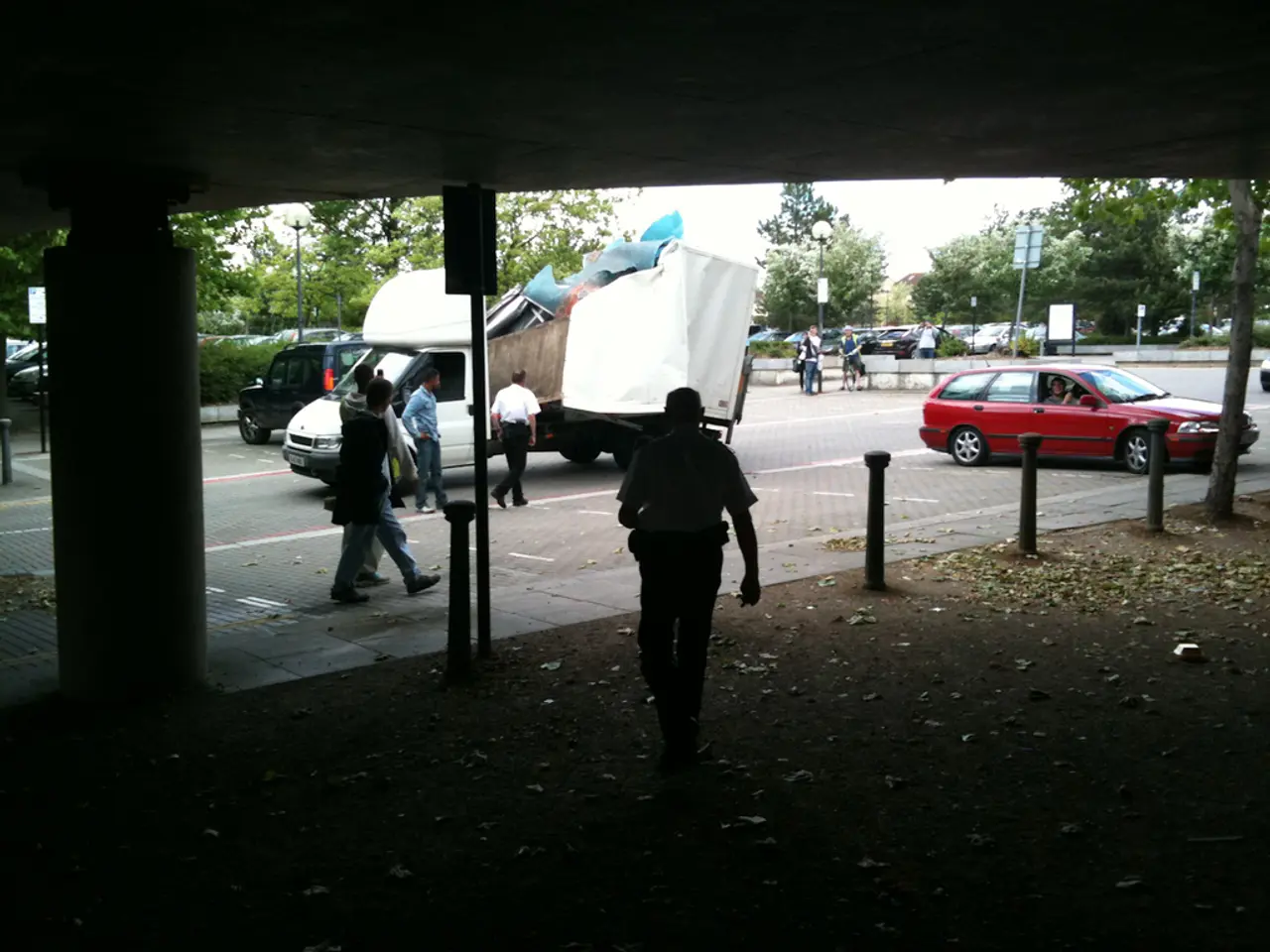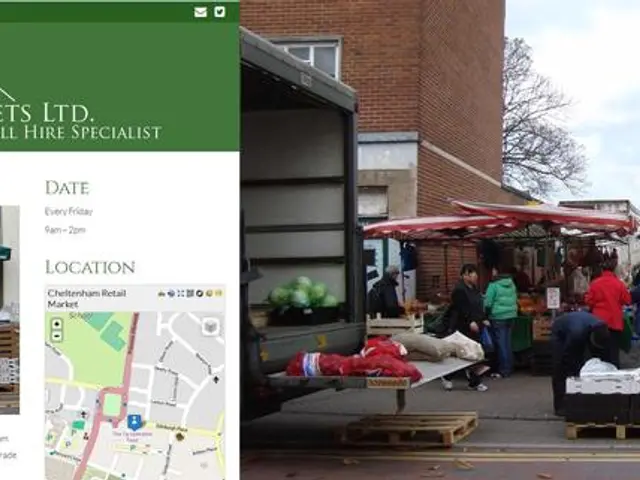Heavy Vehicle Restriction Extension in Pimpri-Chinchwad Stirs Diverse Responses
Heavy Vehicle Ban in Pimpri-Chinchwad Disrupts Industrial Supply Chain
A heavy vehicle ban in the industrial hub of Pimpri-Chinchwad, extending from 8 AM to 12 noon and 4 PM to 10 PM, has caused significant disruptions to the supply chain of numerous companies in the region [1][2]. The ban, which was announced on August 3, affects key areas like Talawade, Talegaon, Bhosari, Chakan, Hinjawadi, and Mahalunge, which rely heavily on road transport [3].
Residents and industrialists alike have expressed concerns about the impact of the ban. Aryan Devne, a resident of Nigdi Pradhikaran, has expressed worry about the safety risks posed by heavy vehicles during peak hours within the city [4]. Dilip Batwal, CEO of the Federation of Chakan Industries (FCI), has raised concerns about the inadequacy of the current truck terminal in Chakan MIDC, which can only accommodate 50-60 vehicles [5].
The ban has hampered the supply of raw materials and the dispatch of finished goods, affecting production schedules and customer deliveries [1]. It has also increased pressure to complete transport operations within restricted time windows, potentially leading to overloading or rushed, risk-prone driving outside ban hours [1]. The spillover effects on interstate trade and supply to major Maharashtra cities like Mumbai, Kolhapur, and Nagpur, are also significant [1].
To mitigate these impacts, potential solutions include rescheduling industrial logistics, enhancing last-mile connectivity, improving enforcement, developing alternative transport corridors, and engaging and coordinating between industries, transporters, and local authorities [6]. The government has promised to provide land for a spacious truck terminal on 55 acres of land near Yelawadi, but no action has been taken yet [7].
Sandeep Belsare, Chairman of the Pimpri-Chinchwad Small Scale Industries Organisation, has highlighted the need for proper parking arrangements, facilities, and security for drivers at the truck terminals [8]. Shail Matade, a resident of Pimpri, supports the extension of the heavy vehicle ban, stating it reduces traffic disruptions on the old Mumbai-Pune Highway [9]. However, Pimpri-Chinchwad Deputy Commissioner of Police (Traffic) Vivek Patil acknowledges the concerns raised by industrialists and promises to look into the issue of heavy vehicle congestion [10].
The construction of two truck terminals in the Talegaon MIDC area, with a combined capacity of 550 trucks, is underway [11]. Despite these efforts, the heavy vehicle ban continues to cause disruptions to the supply chain of industries in Pimpri-Chinchwad, as heavy vehicles are essential for transporting raw materials, finished products, and more. Addressing these issues requires a balanced approach that alleviates traffic congestion and safety risks without crippling industrial productivity and supply chain stability in this critical economic region [1][4].
References:
[1] Times of India
[2] The Hindu
[3] DNA India
[4] India Today
[5] Business Standard
[6] BusinessWorld
[7] Mid-Day
[8] Pune Mirror
[9] Pune Newsline
[10] Pune Mirror
[11] Pune Newsline
- The heavy vehicle ban in Pimpri-Chinchwad affects not only the industrial sector, but also other aspects such as education, finance, and sports, as the disruptions in the supply chain may impact the delivery of necessary resources to schools, businesses, and sports facilities.
- In the realm of news, weeks of discussions on the heavy vehicle ban in Pimpri-Chinchwad have raised concerns about the potential financial losses that the industrial sector may incur due to the disruptions in the supply chain.
- The heavy vehicle ban in Pimpri-Chinchwad has not only affected the industrial sector but also other industries like education, sports, and finance, as the disrupted supply chain can lead to delays in the delivery of raw materials, finished goods, and services.
- The disruptive effects of the heavy vehicle ban in Pimpri-Chinchwad extend beyond the industrial sector, impacting education, finance, and sports, as the interruptions in the supply chain may result in delayed deliveries of resources and services.




